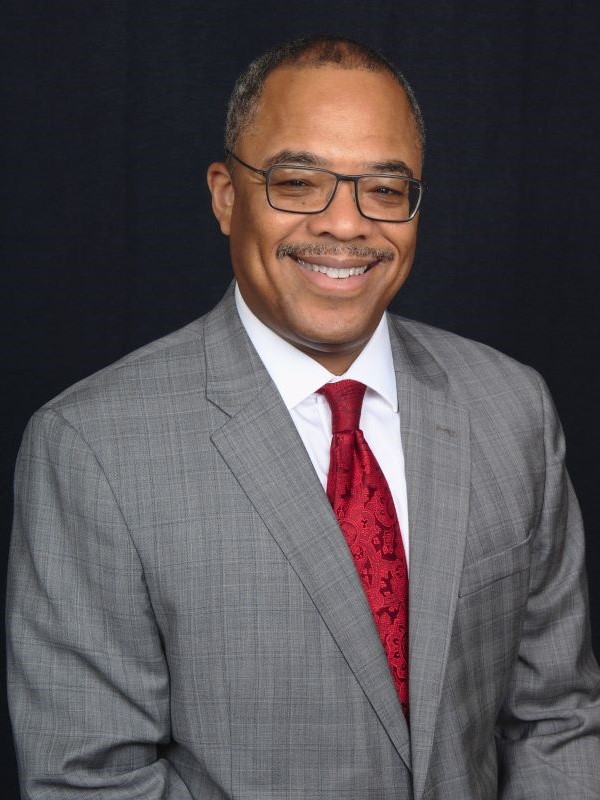
Paul Walker
PHARMACY
Graduated in 1980 (BS), 1982 (PharmD)
Immediate Past President, American Society of Health-System Pharmacists
Clinical Professor and Assistant Dean for Experiential Education and Community Engagement
University of Michigan College of Pharmacy
Q: Why did you choose Wayne State University?
A: I received a full tuition scholarship and from exploring pharmacy schools knew that WSU had a strong program. Its PharmD program was also rated as a solid program, which is why I chose to complete that program at Wayne State, too.
Q: What inspired you to pursue Pharmacy?
A: I wanted to be a healthcare professional but did not want to do some of the things required of physicians and nurses. Pharmacy seemed to be an excellent option where I could apply my interests in science to patient care.
Q: Who was your most memorable Professor?
A: So many of them are memorable, but Dr. Robert Louis-Ferdinand is by far the most memorable professor because he was one of my mentors. He almost convinced me to do a PhD in pharmacology. Working one summer with a variety of animals - rats, dogs with hyperactive sebaceous glands, cats, and monkeys - at a pharmaceutical company helped me decide that lab work with animals was not for me. Dr. Melvin Dunker is also memorable because of his great head of white hair and his challenging (really hard!) exams!
Q: Did you have a favorite hangout on campus?
A: Before pharmacy school, my friends and I hung out at the Student Union. We played many a game of bid whist (card game) there and had lots of fun.
Q: Share some reflections about your time at Wayne State:
A: I loved my time at WSU! The professors challenged me to do my best work, encouraged me to think critically, and helped me solidify my career direction. I enjoyed the camaraderie of fellow students when we studied together, ate lunch together, and played cards (euchre, which I never really got the hang of) in the cafeteria. I made some lifelong friends during my college days at WSU. My time there, especially at the college of pharmacy, prepared me well for the very rewarding career I have enjoyed in the profession.
Q: In your opinion, what is one of the biggest changes that has occurred in your profession since graduating?
A: The profession has evolved significantly since I graduated. Clinical pharmacy, in which pharmacists provide direct patient care, was in its infancy when I graduated; and it became the vision of the profession in the mid-1980's shortly after I graduated. It has now become the norm, particularly in health system pharmacy. While residency training was available when I graduated, few graduates pursued it. Now, residency training is required for most entry level positions in hospitals and health-systems, and residencies in community pharmacy are growing. And PharmD graduates today are finding broader application of their knowledge and skills in nontraditional roles - in the pharmaceutical industry, managed care, and other settings.
Q: Share a career highlight or summary:
A: The cherry-on-the-top of my professional life has been to serve as the 79th President of the American Society of Health-System Pharmacists. It has been one of the most rewarding and satisfying opportunities I have had in my 43 years of practice and professional service. ASHP is the largest professional pharmacy organization in the country, probably the second largest in the world, with over 65,000 pharmacists, student pharmacists, and pharmacy technician members. To lead such a prestigious and influential organization; to create and influence change that charts the future of health system practice, not just in the U.S., but around the world; and to nurture budding leaders - what an experience this has been! To sit at tables I never dreamed I would and to participate in discussions that will impact the profession, now and in the years to come! To advocate and speak about issues that are important to me, and to lead an awesome group of colleagues as we consider where we as a profession ought to go! To serve our profession in this role has been an awesome privilege and a great honor.
The Doctor of Pharmacy program at Wayne State University is a four-year curriculum in the heart of Detroit. Approximately 100 students are enrolled in each year of the program. WSU Applebaum information meetings for prospective students take place at 6 p.m. on the first Tuesday of each month. The application process or the Doctor of Pharmacy program begins each July.
An anchor in urban health care
The Eugene Applebaum College of Pharmacy and Health Sciences is built on more than 100 years of tradition and innovation in the heart of Detroit. We have grown deep roots in our city, harnessing its powerhouse hospital systems and community service organizations as vibrant, real-world training grounds for students, with an ongoing focus on social justice in health care. And our research at all levels – from undergraduates to veteran faculty members – translates into creative solutions for healthier communities.
Wayne State University is a premier urban research institution offering approximately 350 academic programs through 13 schools and colleges to nearly 24,000 students.